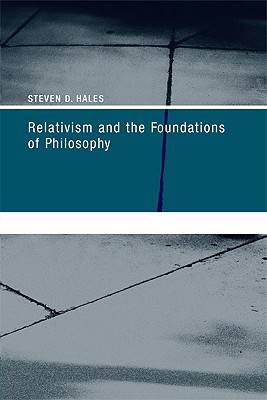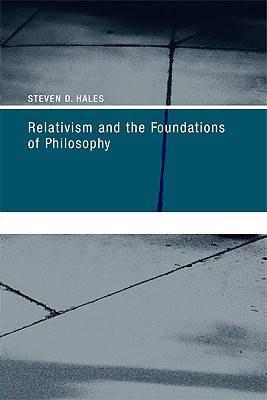
- Retrait gratuit dans votre magasin Club
- 7.000.000 titres dans notre catalogue
- Payer en toute sécurité
- Toujours un magasin près de chez vous
- Retrait gratuit dans votre magasin Club
- 7.000.0000 titres dans notre catalogue
- Payer en toute sécurité
- Toujours un magasin près de chez vous
Description
A defense of the view that philosophical propositions are true in some perspectives and false in others, arguing that the rationalist, intuition-driven method of acquiring basic beliefs favored by analytic philosophy is not epistemically superior to such alternate belief-acquiring methods as religious revelation and the ritual use of hallucinogens.
The grand and sweeping claims of many relativists might seem to amount to the argument that everything is relative--except the thesis of relativism. In this book, Steven Hales defends relativism, but in a more circumscribed form that applies specifically to philosophical propositions. His claim is that philosophical propositions are relatively true--true in some perspectives and false in others. Hales defends this argument first by examining rational intuition as the method by which philosophers come to have the beliefs they do. Analytic rationalism, he claims, has a foundational reliance on rational intuition as a method of acquiring basic beliefs. He then argues that there are other methods that people use to gain beliefs about philosophical topics that are strikingly analogous to rational intuition and examines two of these: Christian revelation and the ritual use of hallucinogens. Hales argues that rational intuition is not epistemically superior to either of these alternative methods. There are only three possible outcomes: we have no philosophical knowledge (skepticism); there are no philosophical propositions (naturalism); or there are knowable philosophical propositions, but our knowledge of them is relative to doxastic perspective. Hales defends relativism against the charge that it is self-refuting and answers a variety of objections to this account of relativism. Finally, he examines the most sweeping objection to relativism: that philosophical propositions are not merely relatively true, because there are no philosophical propositions--all propositions are ultimately empirical, as the naturalists contend. Hales's somewhat disturbing conclusion--that intuition-driven philosophy does produce knowledge, but not absolute knowledge--is sure to inspire debate among philosophers.
Spécifications
Parties prenantes
- Auteur(s) :
- Editeur:
Contenu
- Nombre de pages :
- 216
- Langue:
- Anglais
- Collection :
Caractéristiques
- EAN:
- 9780262513302
- Date de parution :
- 01-09-09
- Format:
- Livre broché
- Format numérique:
- Trade paperback (VS)
- Dimensions :
- 150 mm x 218 mm
- Poids :
- 294 g







